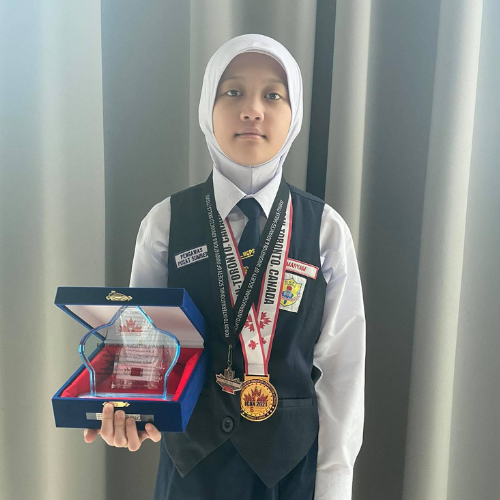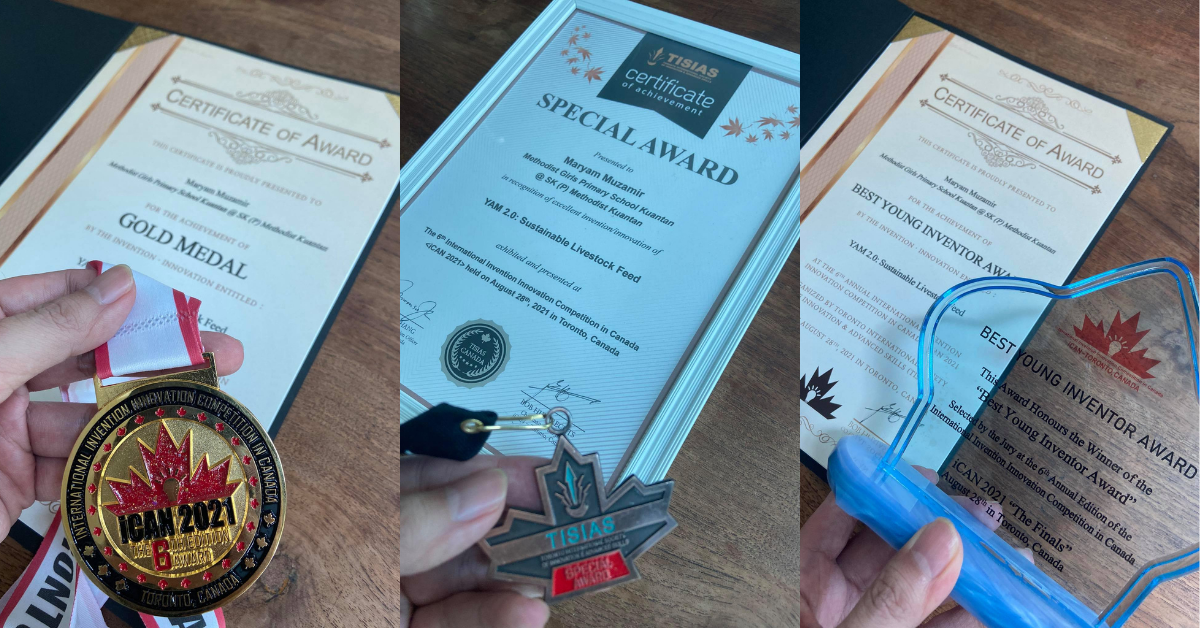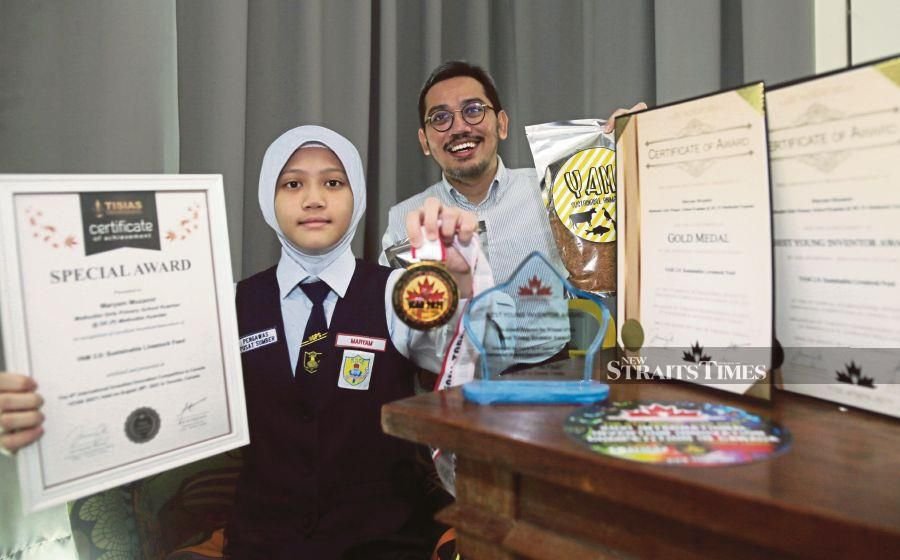11-Year-Old Malaysian Bags 3 International Awards For Her New Invention
Maryam Muzamir created a sustainable type of livestock feed made from common food waste.
Throughout the pandemic, many Malaysians have spent time learning new things and deepening existing passions.
One young schoolgirl, however, invented an innovative, award-winning livestock feed.
11-year-old Maryam Muzamir formulated a new form of livestock feed made out of ground shrimp and sea snail shells, calling the product 'YAM 2.0'.
Her invention earned her three prestigious awards at the recently-concluded International Invention Innovation Competition (iCAN) in Toronto, Canada.
The Standard Five pupil at SK (P) Methodist Kuantan had already won numerous local awards for YAM 2.0 this year and last, reported New Straits Times, but her father convinced her to take it to the world stage.
For her efforts, she brought home the gold medal, the Canadian Special Award, as well as the coveted Best Young Inventor Award at iCAN 2021.
She beat over 600 participants from over 70 countries for the titles, and was the youngest winner in the competition.
Maryam's motivation stemmed from a trip to a seafood restaurant in her native Kuantan
Speaking to SAYS, her father Dr Muzamir Hasan said the name is a play on words of the word 'yummy', which belies the young inventor's childlike tendencies. However, her goal is no child's play.
Inspired by youth climate activist Greta Thunberg, Maryam wants to tackle the reported 15,000 tonnes of food waste that is being produced nationwide on the daily.
The idea came about from one of her family trips to the seafood restaurants that line the coastline there. She observed just how much waste was being produced from these eateries, in particular the amount of shells being dumped.
After chancing upon an article that said seafood shells contain the compound chitin, and its benefit towards livestock, she set about to execute the groundbreaking conception.
She saw a gap in the livestock supply chain that needed addressing
Maryam's motivations were also informed by a revelation that prices of meat has been on the rise in the past few years.
A main contributing factor to the increase is unstable prices of livestock feed, with high-quality corn feed in particular being prohibitively so.
"Based on our observation, the cost to produce YAM 2.0 is lower compared to conventional animal feed products, and it can be used to feed chicken, goats, fish, and even pigs," Muzamir was quoted as saying by the English daily.
"Since the product is cost-effective, it will help control the production cost in the supply chain... YAM 2.0 is an affordable and high-quality solution."
Her father said they intend next to take the product to market
"When I was young, I do not remember trying new innovations. But my daughter seems to be following in my footsteps at an early age," enthused Muzamir.
Their preliminary field tests proved promising. After acquiring and synthesising large amounts of discarded shells from restaurant operators, she provided the prototyped-product to a nearby dairy farm.
They found that the milk being produced by the cows were of similar quality had they been given the more expensive, conventional feed.
"We do not want her to stop (striving) and maybe the next step will be to get a research grant to commercialise the product."



